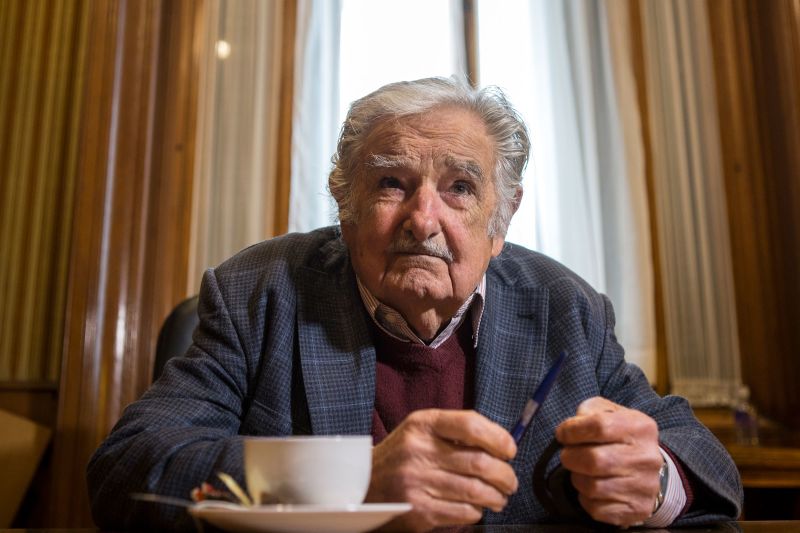
José Mujica, Uruguay’s modest leader who transformed the country, dies at 89
Uruguay’s former President José Mujica, a leftist icon known for his progressive social reforms, died on Tuesday at the age of 89.
“It is with profound sorrow that we announce the passing of our comrade Pepe Mujica,” Uruguay’s President Yamandú Orsi announced on X.
The folksy, former guerrilla is remembered for his modest lifestyle during his presidential term – famously shunning the presidential palace to carry out his duties from his rural farm.
He had been battling cancer for more than a year prior to his death, telling reporters in 2024 that he would fight on for as long as he could.
“I’ll continue to fight alongside my comrades, faithful to my way of thinking, and entertaining myself with my vegetables and my chickens,” he said. “For the rest, I am grateful, and after all, you can’t take away what I’ve had.”
A humble leader
“Pepe” Mujica, as he is more widely known, burst into the national scene in the 1960s as a leader of the leftist militant group Tupamaros, which waged an armed insurgency against the government in the 60s and 70s after being inspired by the Cuban Revolution.
The uprising was put down by government forces during Uruguay’s military dictatorship, and Mujica was subsequently imprisoned for nearly 15 years, enduring many forms of torture.
Mujica spoke of the horror of that period in 2020. “Being tied up with wire with my hands behind my back for six months; being thrown out of the truck for two or three days; going two years without being taken to the bathroom, having to bathe with a jar, a cup of water, and a handkerchief,” he said.
He was released from prison in 1985 after democracy was restored to the country. Four years later, he and other members of Tupamaros founded the Movement of Popular Participation (MPP), a party under which he won several legislative elections.
In 2009, he launched his bid for president, winning in a runoff with more than 50% of the vote.
Under his watch, between 2010 and 2015, Uruguay’s economy expanded, and he implemented several progressive reforms. Uruguay legalized abortion, gay marriage, and allowed the recreational use of cannabis, becoming the first country in the world to do so.
Mujica’s supporters regarded him as one of the humblest leaders the country has ever had, pointing to his decision to forgo the presidential palace and live in a rural farmhouse during his term.
His modest life led many to refer to him as the “world’s poorest president,” a moniker he took issue with.
In April 2024, Mujica announced he had been diagnosed with a cancerous tumor in his esophagus. After months of treatment, his doctor said in August that the cancer in his esophagus appeared to be in remission, but that he had developed a “kidney disease” due to radiation therapy to treat the tumor.
In January, he said the cancer had spread to his liver, telling the Uruguayan media outlet Búsqueda that he was “dying.” He chose to forgo additional treatment and asked to be left alone in the twilight of his life.
“I’m doomed, brother. This is as far as I go,” he said.
Latin America in mourning
Leaders across Latin America mourned the former president, saying the region had lost a beacon of hope and humility.
Alberto Fernández, former president of neighboring Argentina, praised Mujica’s modesty, calling him “an example of austerity in a society that rewards those who amass fortunes.”
Former Bolivian President Evo Morales, a fellow leftist leader who was in office roughly around the same time as Mujica, called him a “brother” full of wisdom whose teachings would continue to live on.
Chilean President Gabriel Boric echoed those sentiments, saying, “If you left us anything, it was the unquenchable hope that things can be done better – ‘step by step, so as not to go off the rails,’ as you used to say.”
